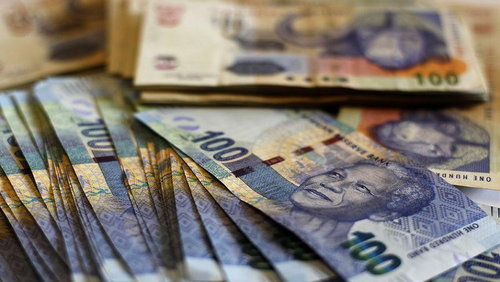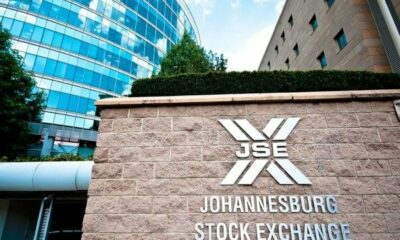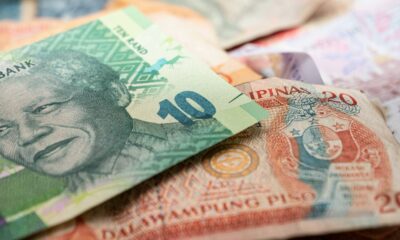Business
Markets Wobble as Middle East Tensions and US Fed Uncertainty Rattle South Africa

Rising global tensions send shockwaves through local stocks and currency
Tuesday was not a good day for South African markets. As the smell of war thickens in the Middle East and global investors brace for more signals from the US Federal Reserve, the Johannesburg Stock Exchange (JSE) and the rand felt the heat and it showed.
By 4pm, the JSE All Share Index had dipped 0.7%, closing at 94,695 points. The rand, already skating on thin ice due to heightened geopolitical risks, fell back to trade above R18.80/$, a sharp reversal from its recent high of R17.70.
This wasn’t just a bad day on the markets. It was a reminder of how deeply South Africa’s economy is plugged into global shocks, especially those involving oil and major currencies.
Middle East on Edge: War Clouds and Oil Spikes
The latest bout of market nerves stems from the escalating conflict between Iran and Israel, which took a dramatic turn after US President Donald Trump issued a stern warning for Iranians to evacuate Tehran — a comment that spooked global markets and raised the stakes in an already volatile region.
Iran, for its part, is threatening what it claims will be the largest ballistic missile attack on Israel in retaliation for strikes on its state facilities.
This sabre-rattling has markets fearing for the Strait of Hormuz, the narrow waterway through which nearly 20% of the world’s oil flows. Any disruption here sends crude prices flying — and this time was no different.
Oil jumped to $74 a barrel on the news, reversing last month’s dip to $60. Meanwhile, gold surged above $3,390 per ounce, as investors sought the safety of precious metals amidst the chaos.
The Local Fallout: Rand and Stocks Stumble
South African stocks tied to global sentiment took some of the heaviest blows. Karooooo, Assura and Harmony Gold were among the biggest losers, plunging 4.55%, 4%, and 3.3% respectively.
While the weaker US dollar provided a cushion for the rand earlier in the quarter, it wasn’t enough to hold off the pullback this week. According to Investec chief economist Annabel Bishop, the rand’s recent strength was largely driven by confusion in US trade policy.
“Volatility in US tariffs has injected global uncertainty, pushing investors into risk-off mode,” Bishop said. “The rand is holding steady against the dollar but remains weaker against the euro and pound. That tells us risk aversion is running high.”
The Fed Factor: Caution Ahead of Rate Decision
Adding to the market jitters is the looming US Federal Open Market Committee (FOMC) meeting. Scheduled for Wednesday, the outcome could significantly shift investor sentiment.
While most analysts expect the Fed to keep interest rates on hold, what everyone’s really watching is Fed Chair Jerome Powell’s press briefing. Any hint at future hikes — or worries about inflation — could send currencies and equities into another tailspin.
There’s also growing curiosity about how America’s new tariffs and global economic policy shifts will affect the Fed’s economic projections. Traders will be keeping an eagle eye on GDP and inflation forecasts that could ripple across emerging markets like South Africa.
A High-Stakes Moment for Local Investors
For South African households already battling high inflation, load shedding and slow wage growth, these external shocks are more than just numbers on a screen. A weakening rand raises the cost of fuel and imported goods. Rising oil prices threaten to undo potential petrol price relief.
If the Middle East crisis escalates or the Fed spooks investors further, South Africans could see another round of inflationary pressure — and with it, the possibility of local rate hikes to stabilise the currency.
What Social Media Is Saying
Local sentiment is tense:
“Dollar crashes, oil soars, and we pay more at the pump. Again.”
“How does a missile in the Middle East make my loaf of bread more expensive?”
“SA needs a plan to protect itself from all this foreign drama.”
Calm Before the Next Storm?
South Africa’s markets are bracing for more volatility. While some relief may come if tensions cool or the Fed strikes a cautious tone, uncertainty is now the name of the game.
Investors, business owners and everyday South Africans alike are left watching the horizon, hoping that a war halfway across the world doesn’t cause more harm than we can afford.
Stay tuned. The rest of the week could be even bumpier.
{Source: IOL}
Follow Joburg ETC on Facebook, Twitter , TikTok and Instagram
For more News in Johannesburg, visit joburgetc.com



























